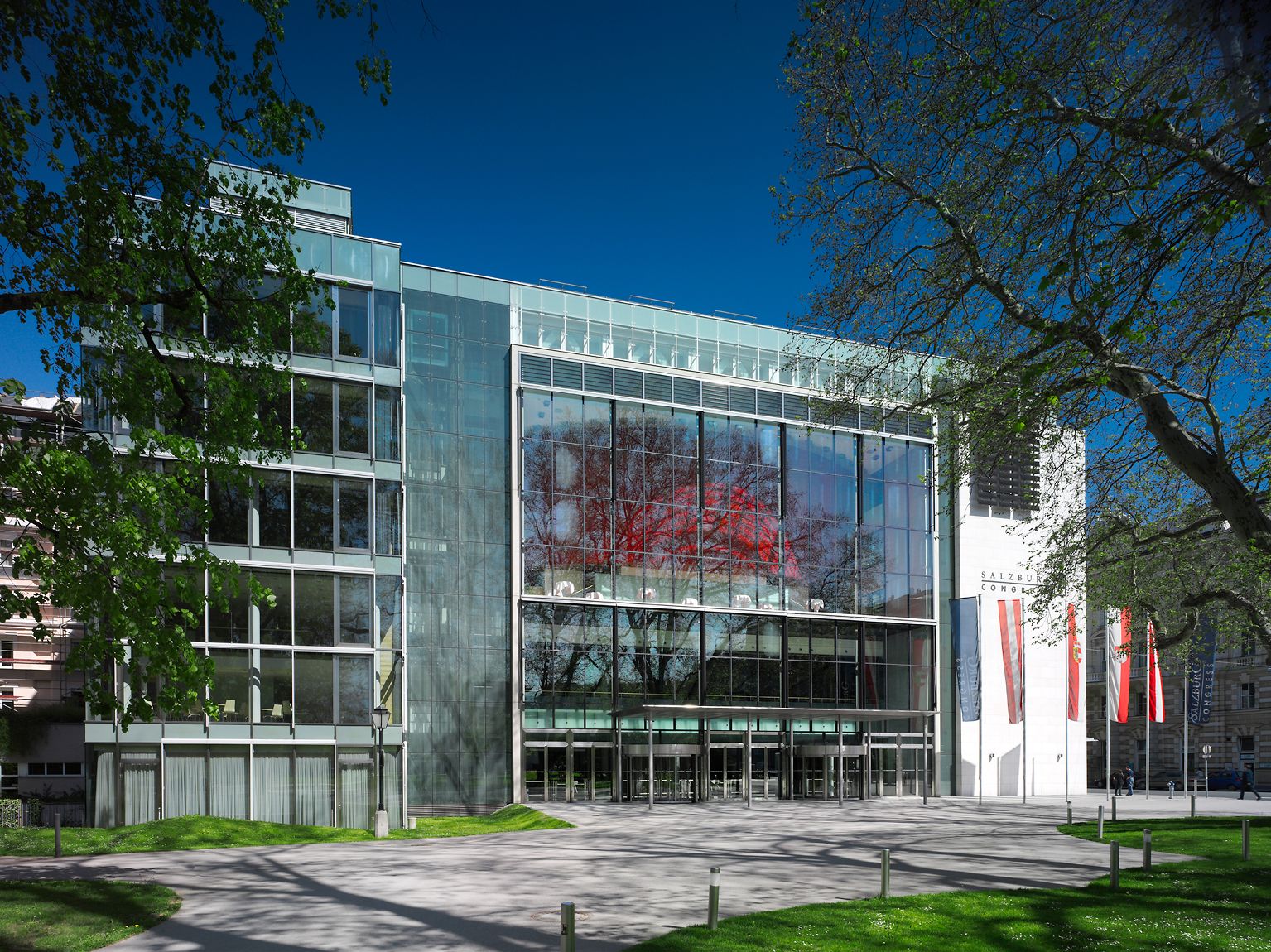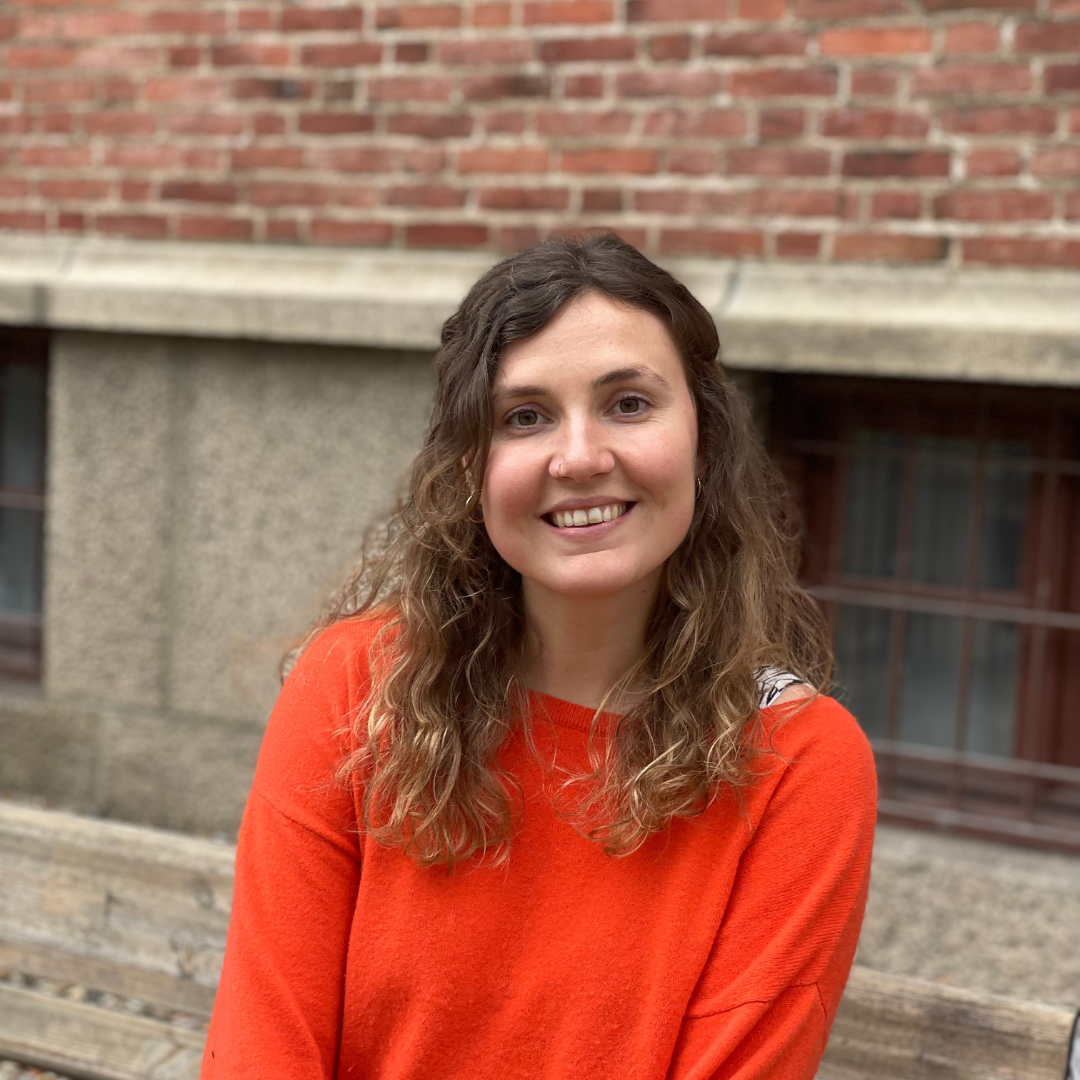In an exclusive interview with Robert Hild, the head of Salzburg Congress, we delve into the crucial—yet often overlooked and sometimes daunting—role of technology in event and congress management. Robert shares how the implementation of LiveVoice as their primary interpretation system not only streamlined their processes but also led to significant cost savings.
Salzburg Congress stands at the forefront of technological innovation in the event business. Robert Hild in his role as head of congress, ensures with his curiosity, interest, and openness that Salzburg Congress is equipped with cutting-edge technology, continually attending trade fairs to stay ahead. For him, technological infrastructure is crucial, giving Salzburg Congress a leading position.
Despite Salzburg being dubbed a “quaint little town” by Robert, rather than an international hub, it competes on a global scale with locations like Melbourne, Tokyo, Seoul, and Cape Town, even securing last year’s prestigious Geo-Informatics Congress. At the same time, Robert acknowledges that technology alone does not win congresses of course; the image of Austria and Salzburg as a destination, coupled with strong connections to major hubs like Vienna and Munich, is an important factor in making Salzburg Congress successful.
Undeterred by past successes, Robert and his team are not complacent. Technological advancement is a galloping horse for them. The buzzword “Disruption” echoes in every other keynote speech at conferences. Staying current and future-proofing Salzburg Congress is no easy task, but Robert is certain: to remain competitive, one must stay dynamic. Static approaches are outdated, which is why he embraces the spirit of LiveVoice—an evolving tool that enhances customer experiences continuously.
LiveVoice: Thank you for taking the time today, Robert. Could you start by telling us a bit about yourself and your role at Salzburg Congress?
Robert: Certainly. I began my career as an event manager and then transitioned to the Head of Operations. Currently, I serve as the Head of Congress. I’ve been with Salzburg Congress for 23 years, and over that time, I’ve seen firsthand how crucial technology has become in the event management field. We’re always striving to ensure our venue is equipped with the latest innovations to remain competitive and future-proof.
LiveVoice: That’s impressive. How did you first come across LiveVoice, and what made you decide to implement it?
Robert: Before LiveVoice, we tried another audio-streaming service, but it was quite complicated and didn’t work well with our existing systems. Unfortunately, it was a complex system that required a mix of hardware and software, which never worked seamlessly together. This caused numerous issues for our technicians and ultimately wasn’t a viable solution. We stumbled upon LiveVoice through ZUPmedia, one of our suppliers, who suggested we try it out. It turned out to be a game-changer for us. We abandoned the previous service and fully integrated LiveVoice, which significantly simplified our operations and cut costs.
“LiveVoice turned out to be a game-changer for us. We abandoned the previous service and fully integrated LiveVoice, which significantly simplified our operations and cut costs.”
But the real challenge started earlier: we were faced with the huge challenge of dealing with our interpretation system, which was over 30 years old. Changing it would have meant a massive intrusion into our infrastructure. We would have had to close down the building, remove all the cabling, dismantle the infrared transmitters and the headsets were already obsolete. It would have cost a fortune, and it would only have been feasible if you were starting from scratch, like you do when you build a new building, but in our case it’s just not worth it. It’s a fairly classical infrastructure, but over the years the traditional interpretation has become less and less relevant to us and hasn’t carried the same weight. So we said to ourselves, we’re not making any money out of it, so it’s pointless to invest at least 500.000 euros in it. There’s no point in betting on a horse that’s already dead. So we kept looking for alternatives. Unfortunately, the first one was a failure. But now with LiveVoice we are where we want to be.
LiveVoice: What a journey in the interpretation technology jungle. I’m glad you found us after all. You mentioned that the number of multi-lingual events has decreased significantly in recent years. Why do you think that is the case? Because of increasing English proficiency?
Robert: That’s certainly part of it. And of course it’s also due to our event mix. We have a lot of national events hosted by national organisations, and the language of the presentations is German. We have a lot of events from the DACH region, so the language spoken is also German. International events are usually held in English. But it is important to emphasize that it is not the convention center that decides, it is our clients, the organizers, who decide what languages are offered at the event. Whether they value it or not, they may say, “No, I’ll save the expense, what’s the point? Everyone speaks English nowadays.” Or they might say, “No, no, this is a VIP group, I have to give them the best service.” It’s very specific to us and very selective.
LiveVoice: So, would you say that the more exclusive the group, the more they would rely on this service, and the more informal it is, the more everyone is expected to speak English almost?
Robert: Exactly, with corporate clients, it’s expected that everyone speaks English. But in political circles and at political conferences, interpretation in various languages is much more common. In Brussels, for instance, there are EU interpreters who work all day long. It’s crucial because they deal with legislative texts and decisions that affect future generations or climate policy. Even high-ranking politicians may prefer to work in their mother tongue to ensure they understand everything 100%.
“LiveVoice’s level of user-friendliness is comparable to using an iPhone (…)”
LiveVoice: Thanks for your assessment with regard to your impression on multilingual events nowadays. You mentioned how happy you are about LiveVoice. What do you particularly like about it?
Robert: We are extremely satisfied with LiveVoice for several reasons. First, your responsiveness to feedback and commitment to continuous development is impressive. You are always open to suggestions and consistently work on improving the system. Second, the usability is excellent. It’s designed to be intuitive, making it easy for external technicians who may not be familiar with our setup to use it effectively. This level of user-friendliness is comparable to using an iPhone, which is a significant advantage for us.
LiveVoice also makes us much more flexible. We can add languages within minutes without any effort.
“The ability to avoid high annual fees and only pay for what we use has been a huge financial relief.”
Besides that, one of the biggest advantages is the cost structure. Traditional systems often require a significant upfront investment and annual fees, which can be very burdensome. LiveVoice, on the other hand, offers a pay-per-use model, which is much more flexible and cost-effective. This is particularly advantageous for conference centers that have to be very mindful of cost efficiency. The ability to avoid high annual fees and only pay for what we use has been a huge financial relief.
LiveVoice: Can you provide specific figures on the cost savings?
Robert: Sure. If we were to renew our traditional congress systems, it would cost us at least 500.000 euros. The pay-per-use model of LiveVoice allows us to avoid these huge upfront costs. The flexibility to only pay when we need the service is invaluable.
“Setting up interpretation services used to be a complex and time-consuming task, but with LiveVoice, it’s become much more straightforward.”
LiveVoice: Can you share some feedback from participants who have used LiveVoice?
Robert: The feedback has been overwhelmingly positive. The system is so straightforward and effective that we rarely receive any questions or complaints. Most of our clients are repeat users who prefer LiveVoice over traditional interpretation equipment. And also our staff really appreciates how easy it is to set up and use.
LiveVoice: What challenges did you face initially when implementing LiveVoice, and how did you overcome them?
Robert: As it is with technological innovations, they are initially met with doubt and resistance because there is a fear of uncertainty involved. And we also encountered this with many stakeholders on the implementation of LiveVoice.
First of all we had clients who were unsure about having participants use their own smartphone and particularly having them downloading an app. But by installing service stations where we help less tech-savvy people in this process and additionally provide them with headphones, adapters and power banks in case they needed them, we were able to overcome the initial doubts and concerns. Besides that, also our AV technicians were quite skeptical first, since they had very bad experiences with the previous system and were thus mistrusting another system that should solve their problem but may actually make it worse. But your empathy, your interest in the needs of the technicians, as well as the event managers, made them trust LiveVoice – that was a fantastic job! Meanwhile everyone in the team is excited about how easy the setup is and how flexible this is making us.
“This autonomy (we now have with LiveVoice) has improved our efficiency and allowed us to focus more on delivering exceptional events rather than getting bogged down by technical details.”
LiveVoice: That is really nice to hear! And how has LiveVoice impacted your event management process overall?
Robert: LiveVoice has streamlined our event management process significantly. Setting up interpretation services used to be a complex and time-consuming task, but with LiveVoice, it’s become much more straightforward. Our event managers can now easily configure the system themselves, reducing the dependency on specialized technicians. This autonomy has improved our efficiency and allowed us to focus more on delivering exceptional events rather than getting bogged down by technical details.
LiveVoice: Have there been any unexpected benefits since you started using LiveVoice?
Robert: Yes, one unexpected benefit has been the enhanced accessibility for hearing-impaired attendees. We’ve started using LiveVoice not just for interpretation but also as an assistive listening tool. Attendees with hearing impairments can use their own devices to access amplified audio, which has been a wonderful addition to our inclusivity efforts. This wasn’t something we initially planned, but it has proven to be quite valuable.
LiveVoice: What advice would you give to other conference centers?
Robert: My advice is to stay open-minded and curious about new technologies. Many venues are hesitant to adopt new systems because they lack technical expertise or are set in their ways. It’s essential to have a proactive approach and explore what new tools like LiveVoice can offer. Designate a team or a person to champion the adoption of such innovations. This can make a significant difference. LiveVoice is a great example of how technology can enhance event management and improve attendee experience.
LiveVoice: Thank you for sharing your experience, Robert. It’s great to hear how LiveVoice has positively impacted Salzburg Congress.
Robert: It was my pleasure. I’m glad I could share our success story and hopefully inspire others to embrace innovative solutions like LiveVoice.

